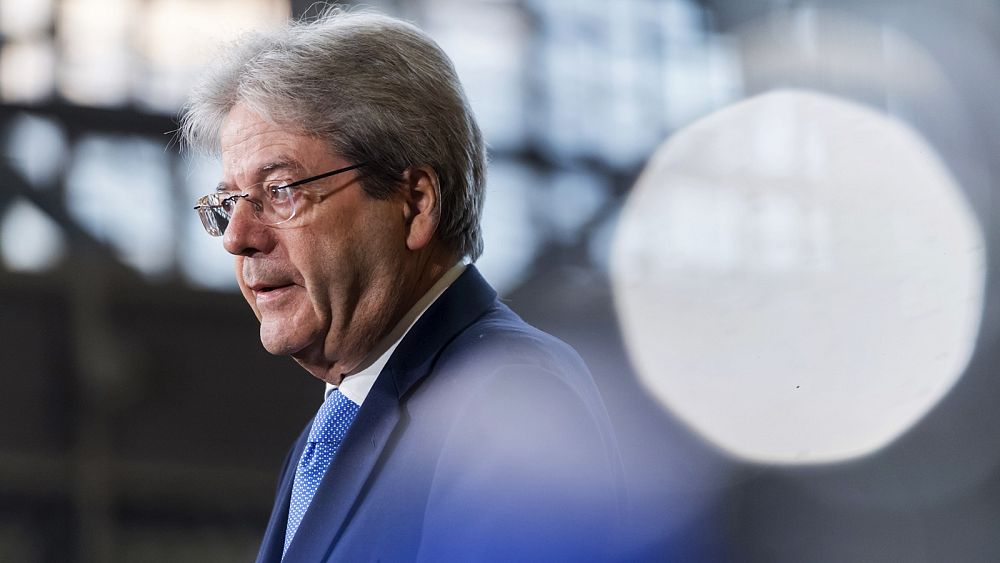
Paolo Gentiloni, the European Commissioner for the economy, offered on Friday a candid assessment of the European Union’s fiscal framework.
EU member states have to adhere to a set of rules, known as the Stability and Growth Pact (SGP) to keep a cap on their public deficit and government debt but which have been the object of intense scrutiny since their introduction in the late 1990s.
The limits were set at 3% for deficit-to-GDP and at 60% for debt-to-GDP.
The conversation gained further traction in the aftermath of the 2007-2008 financial meltdown and the subsequent European debt crisis, which saw several countries adopt punishing austerity measures that backfired and exacerbated the pain.
Now, following the back-to-back economic shocks unleashed by the COVID-19 pandemic, Russia’s invasion of Ukraine, soaring energy prices and record-breaking inflation, the debate is back on the top of the political agenda.
The European Commission put forward in April a legislative proposal to overhaul the fiscal rules and make them fit for purpose in the new economic landscape. The review keeps the 3% and 60% targets intact but allows member states wider space to design their own trajectories and sanitise their finances across a four-year period.
“Our goal is to make the framework simpler, more transparent and more effective, with greater national ownership and better enforcement, while allowing for reform and investment and reducing high public debt ratios in a realistic, gradual and sustainable manner,” Gentiloni said in remarks at the Salzburg Summit 2023.
“It didn’t happen in the last 25 years, so we’re starting from a situation where existing rules were very useful from several aspects – let’s think, for example, of the famous 3% threshold for deficit-to-GDP – but they were not able to reduce public debt.”
Gentiloni’s comments come days after Eurostat released new data that showed government debt across the EU standing at 83.7% of GDP in the first quarter of 2023, a slim decrease compared to the 83.8% recorded in the previous quarter.
A total of 12 countries remain above the 60% goal enshrined in the fiscal rules, with six of them – Greece, Italy, Portugal, Spain, France and Belgium – breaking the 100% barrier.
While debt levels have gone down in recent months, the economic challenges that lie in the EU’s path threaten to derail the trend.
A recent report by the European Commission estimated the bloc would need up to €745 billion in additional investments per year to fulfill the Green Deal and the digital transition. Although most of the money is expected to come from the private sector, public authorities will be asked to step in and act as the driving force.
In Gentiloni’s view, these exorbitant figures underline the need to modernise the fiscal framework and move away from the economic consensus that characterised the last decade. The ultimate goal, he said, must be achieving “inclusive and sustainable growth.”
But the Commission’s fresh push to reform the rules is far from a deal done.
Countries like Germany, Austria, the Netherlands, Denmark and Estonia have raised concerns about the proposed overhaul because they fear it might give governments excessive leeway to negotiate their national plans and therefore fail to produce a continued, tangible decline in debt levels.
Germany, in particular, has come forth with demands to introduce uniform safeguards to ensure indebted countries realise a minimum reduction every year. France, however, forcefully opposes this approach, arguing it will lead to economic hardship.
Gentiloni acknowledged on Friday the “different positions” around the table and conceded “our proposal can be improved.”
“I think we’re reasonably addressing this issue,” Gentiloni said.
“It is important not to lose the balance we manage to strike as a Commission and work together in the common interest to reach an argument on reform by the end of the year.”